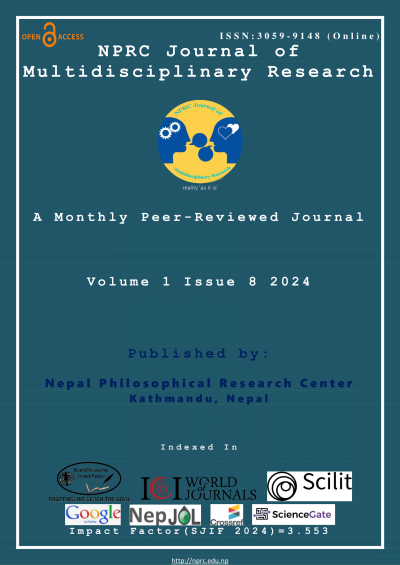Exploring the Knowledge and Practices of Buddhist Ethical Principles among High School Students
DOI:
https://doi.org/10.3126/nprcjmr.v1i8.73044Keywords:
Buddhist ethical principles, multicultural context, high school students, Ahimsa, Sacca, Dana, Khanti, Karuna, ethical educationAbstract
This study explores the understanding and practice of Buddhist ethical principles—Ahimsa (non-violence), Sacca (truthfulness), Dana (generosity), Khanti (patience), and Karuna (compassion)—among high school students in a diverse setting. The study examines how the values of Buddhism are understood and put into practice by adolescents, through a representative sample of 159 students. A quantitative technique was applied to collect data. For this structured questionnaire was employed with a 5-point Likert scale. The analysis combined both descriptive and inferential statistical methods, specifically the T-test and the One-Way ANOVA test. The results indicated a moderate positive correlation between knowledge and practice of Buddhist ethical principles, implying that although students possess an understanding of Buddhist ethics, this comprehension is not invariably apparent in corresponding behavioral actions. Marginal and insignificant changes in scores regarding demographic factors shed light on how these variables may have a minor impact in nuanced ways on ethical engagement. This study underlines the promise of integrating Buddhist ethics into multicultural educational curricula and calls for an experiential and reflective learning approach to deepen the connection between ethical understanding and application.
Downloads
Downloads
Published
How to Cite
Issue
Section
License
Copyright (c) 2024 The Author(s)

This work is licensed under a Creative Commons Attribution-NonCommercial 4.0 International License.
This license enables reusers to distribute, remix, adapt, and build upon the material in any medium or format for noncommercial purposes only, and only so long as attribution is given to the creator.





